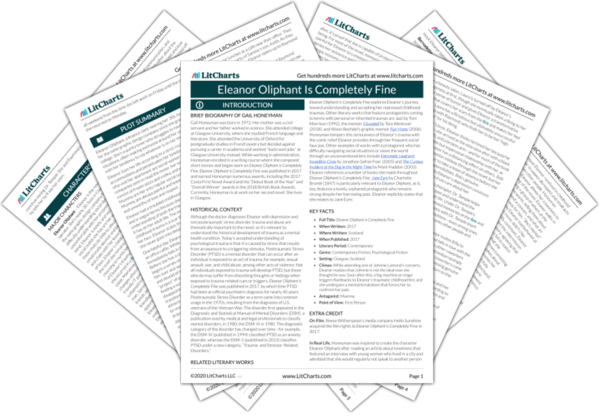Eleanor feels calm as she rides the bus to work on Friday morning. She remembers that she didn’t drink after her talk with
Mummy, though this was mostly because she didn’t have any alcohol at home. Instead of drinking, she distracted herself with a book on tropical fruit, a cup of tea, and, later,
Sense and Sensibility, which she likes for the happy ending Jane Austen gives to the characters Elinor and Marianne.
